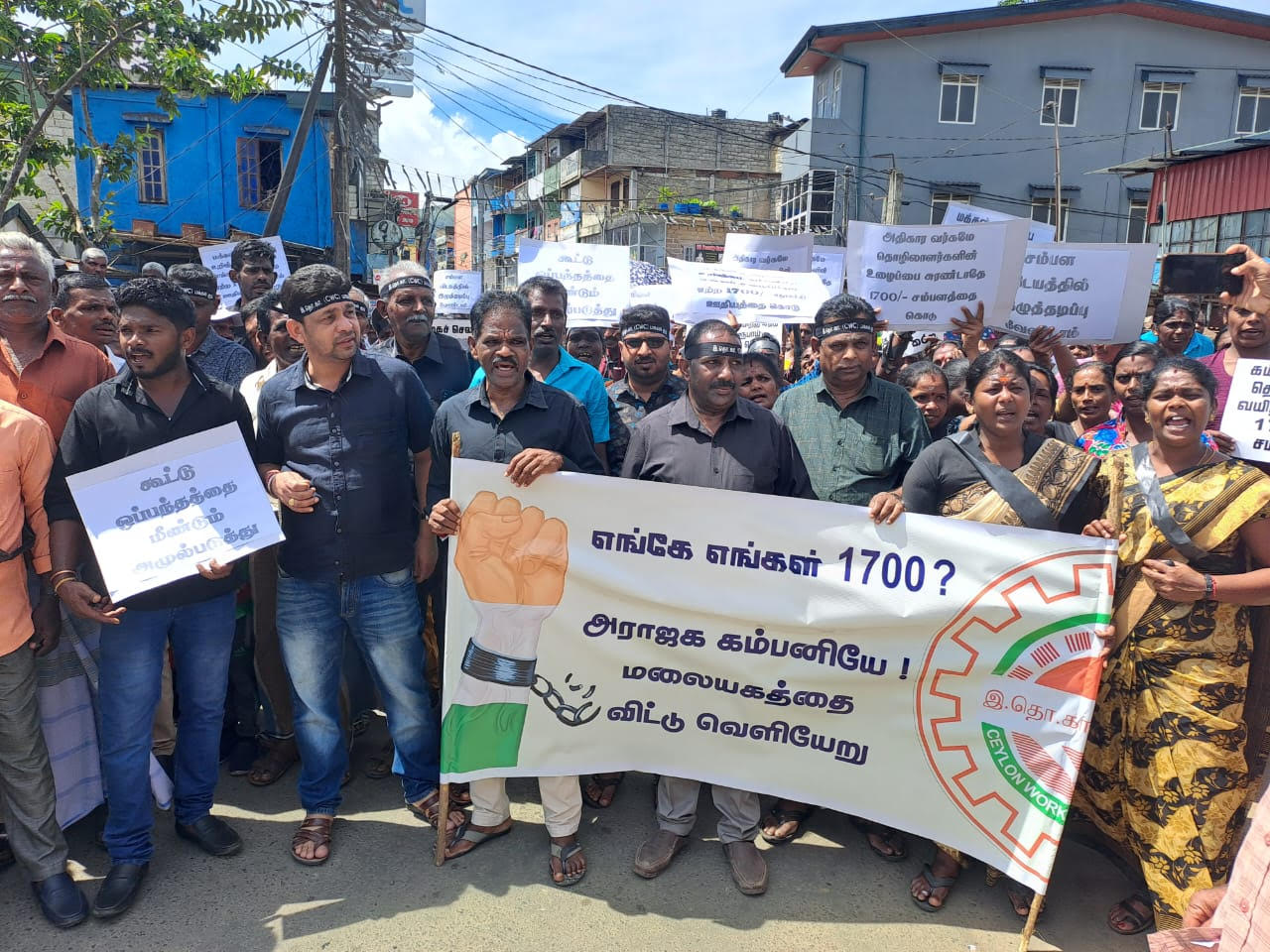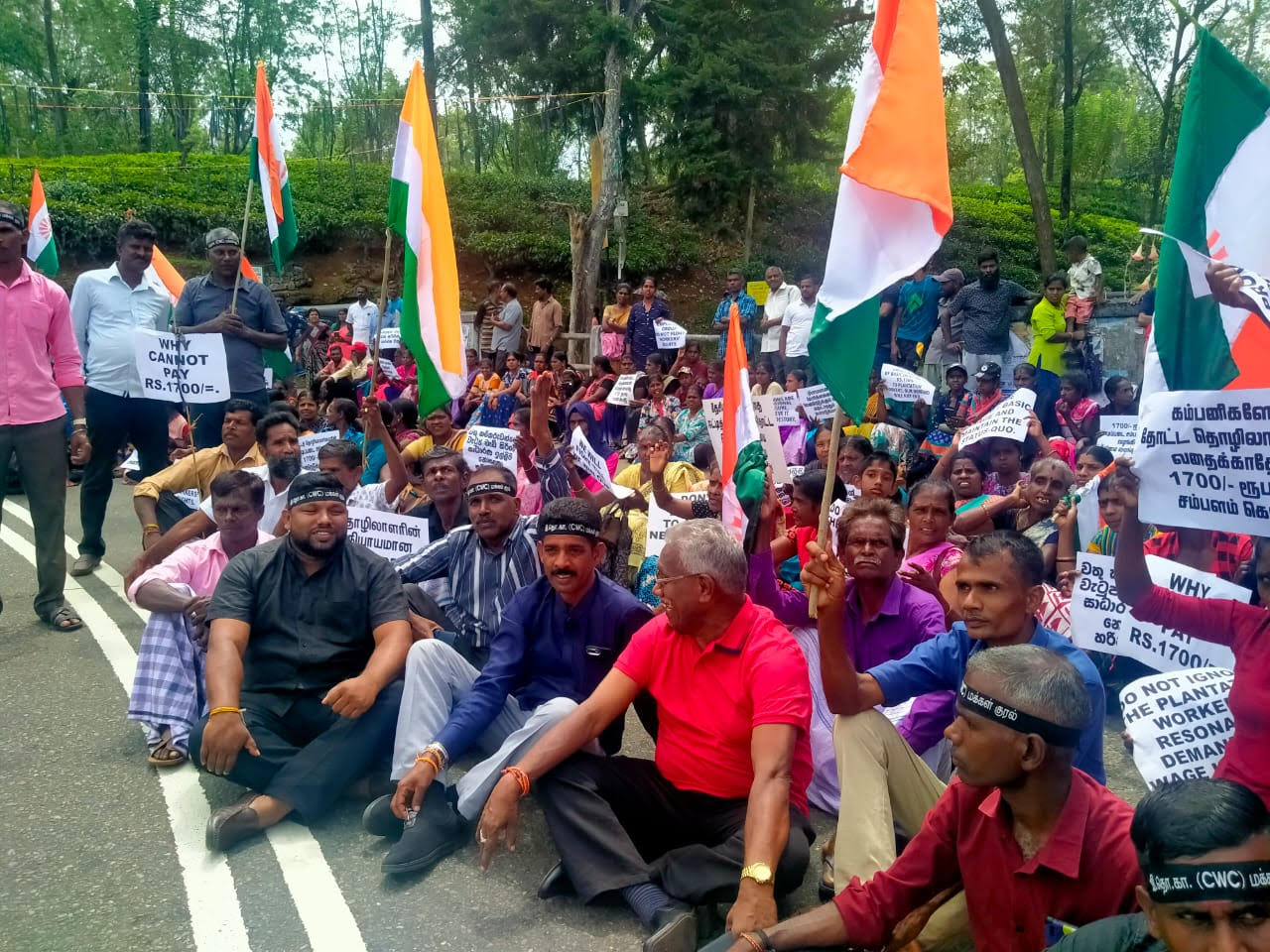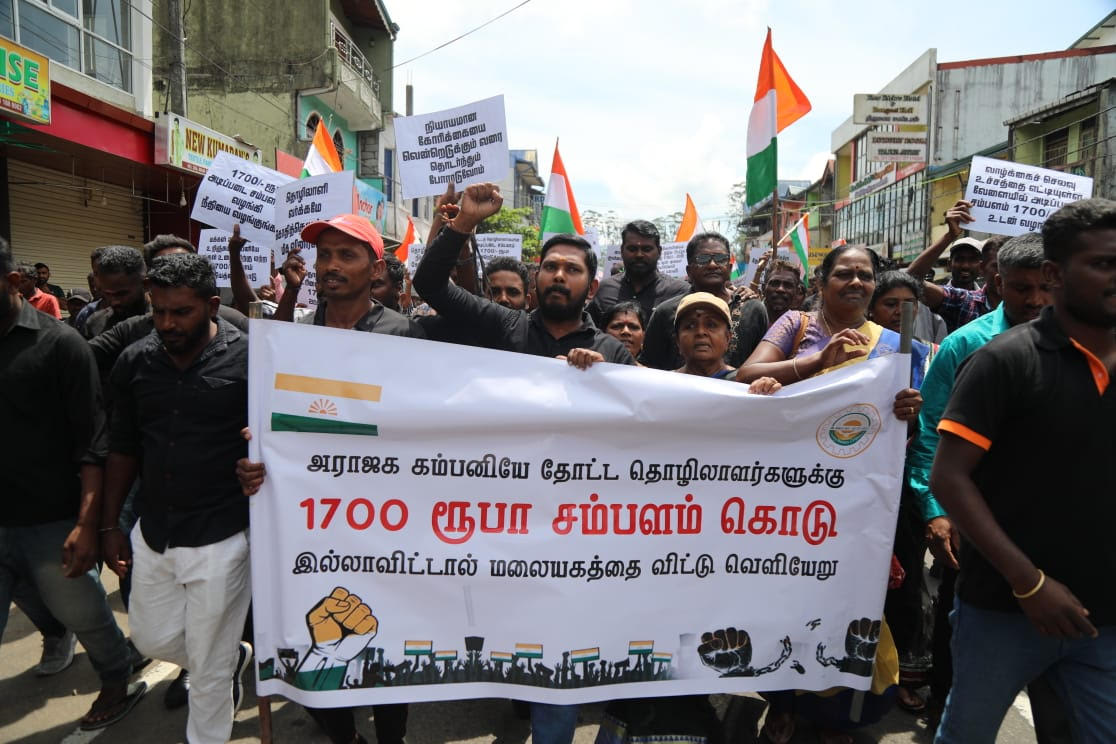Tea plantation workers in the island's hill country, a majority of whom are Malayaga Tamils staged a token strike demanding that their daily wage be increased to Rs.1700 ($5.67 USD) in keeping with the rising cost of living.
They accused the tea companies of ignoring a directive from the Sri Lankan president who assured that their daily wage would be increased to Rs.1700 per day. The protest was organized by the Ceylon Workers Congress along with the support of several other trade unions.
Workers hoisted black flags at the townships of Nuwara Eliya, Hatton, Dickoya, Bogawantalawa, Maskeliya, Digama, Akkarapaittu, Nanuoya, Kotagala, and several other places in support of the ongoing protests. Meanwhile, protest marches took place in Badulla, Passara, Haliela, Haputale, Nawalapitiya, Pussallawa, Rangala, and other areas in the Kandy district.
Establishments in these areas had to close down for the day owing to the strike. The estate workers during the protest march pointed out that tea companies were reaping hefty profits while ignoring the plight of the workers who were finding it difficult to make ends meet with their meager incomes.
Last year, Tetley and Lipton among other major tea manufacturers were investigating the working conditions on tea plantations in Sri Lanka following a Guardian investigation which revealed that workers were unable to pay for food and were living in unsanitary conditions. The investigation also revealed that estate owners provided workers with no support during the island's economic crisis. Workers reported that supervisors denied them pay. Tea pickers have stated that they have had to skip meals and send their children to work to compensate for their inadequate earnings.




